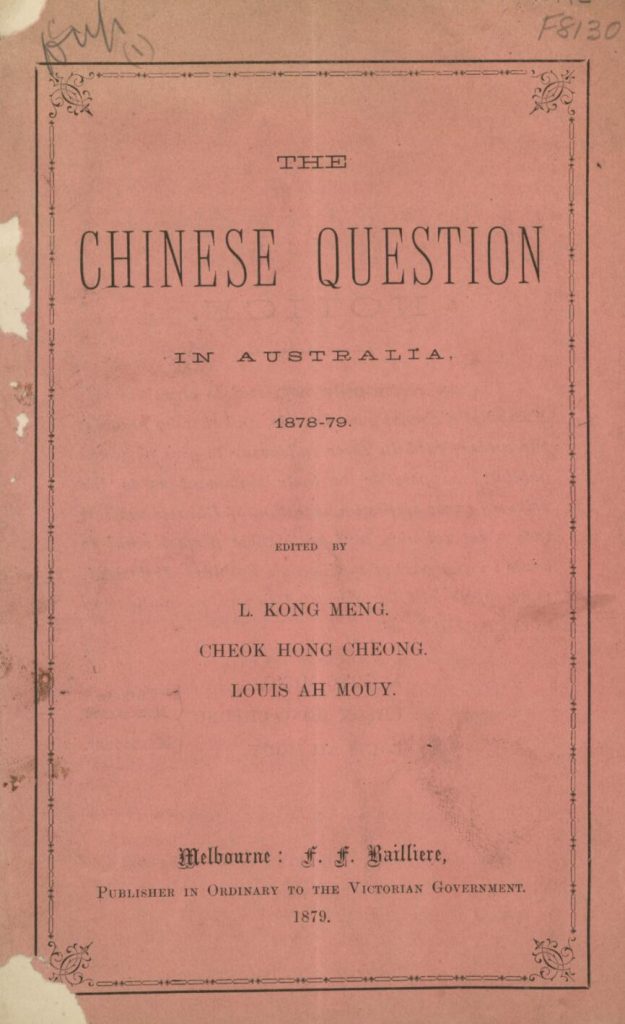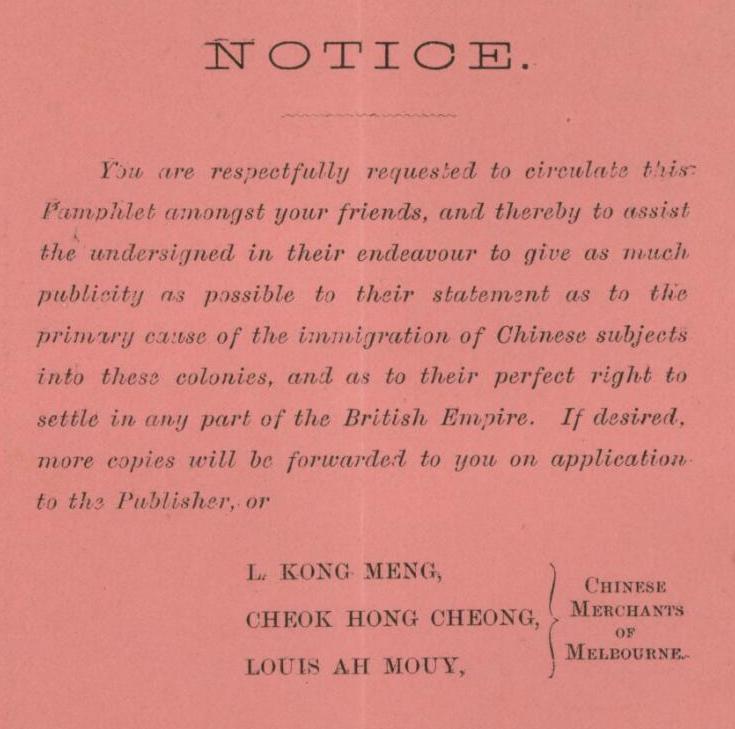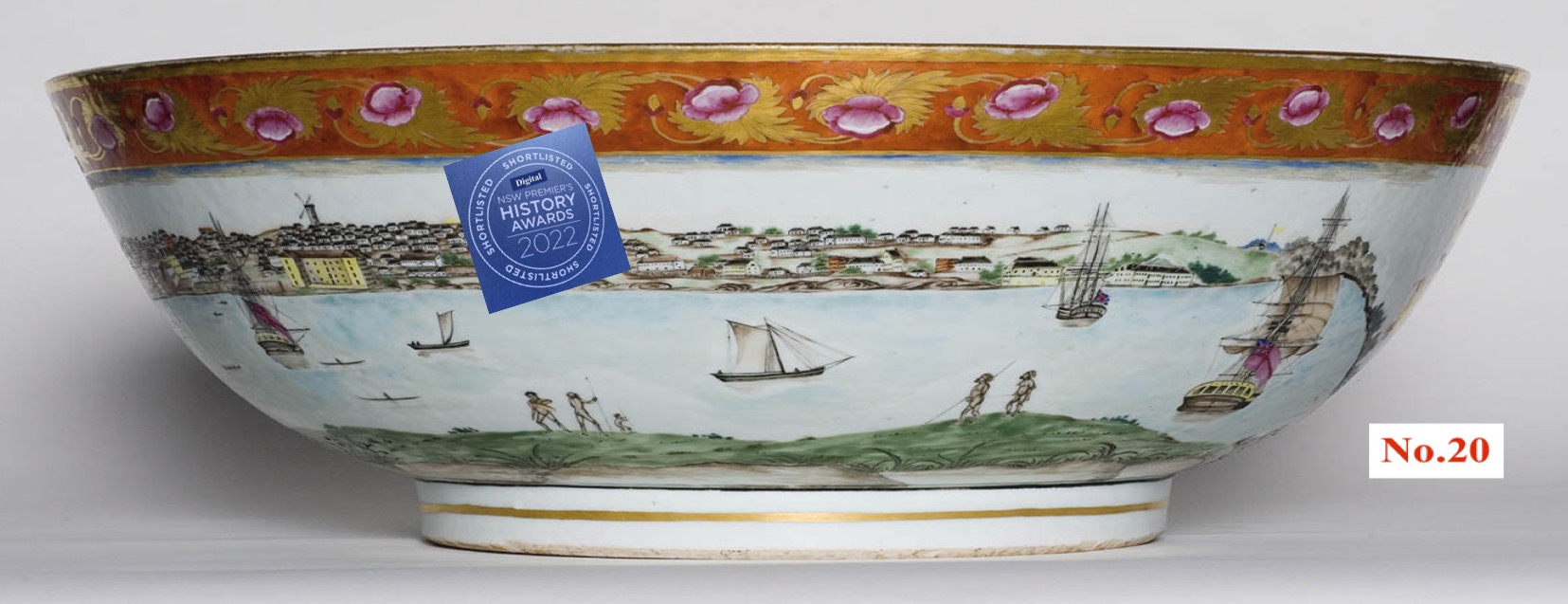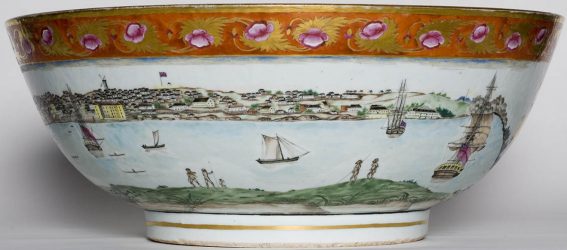
The presence of people from China in the Australian colonies was nearly always contested by those who arrived from, or were the descendants of those arrivals, from Britain. During the 1850s and 1860s this was particularly the case as people competed for the lottery that was gold diggings. Violence and legal restrictions were both resorted to and there are numerous petitions written by Chinese people attempting to assert their rights and sway the governments of the day.[1] By the late 1860s and into the 1870s this degree of conflict lessoned somewhat only to begin to flare up again in 1878, this time in relation to access to certain kinds of work rather than to goldfields. The immediate response was a remarkable document written by three businessmen of Chinese heritage who had long been resident in the Colony of Victoria.
The Chinese Question in Australia 1878-79, edited by L. Kong Meng, Check Hong Cheong and Louis Ah Mouy is an effort to infuse rationality into an emotional debate – “we appeal, as natives of China and as citizens of Victoria, to the reason, the justice, the right feeling, and the calm good sense of the British population of Australia”. On this basis it of course had little effect, and in fact the anti-Chinese movement would only increase from this point cumulating in the Immigration Restriction Act, 1901 (see No.1). Nevertheless, as the voice of those who had made Australia their home in defence of those of similar origin and aspirations it is a remarkable document comparable only to that by Walite Shah written many years later (see Debating White Australia).
The very presence of Chinese people in Australia at all is laid squarely on the colonial power that had first violated the rights of the Chinese government and demanded trade and freedom of movement ostensibly on a basis of equality. This is immediately followed up by an appeal to Christian-based principles of the brotherhood of men. Principles it is pointed out that were violated in attacks on the Chinese gold diggers such as that at Buckland. Attacks that, if similar had occurred in China itself, would have seen demands for “prompt reparation and adequate compensation” and if such was not forthcoming would have resulted in “some men-of-war” “ordered up to the mouth of the Pei-Ho”.
Having pointed out past hypocrisy the current hypocrisy that inspired the document is arrived at. This is the proposition that Chinese seamen should be excluded from shipping in Australian waters. The hypocrisy lying in that a great deal of China’s trade at the time was carried in English ships with no likelihood that a ban on English seamen would be put in place.
“Surely, justice is justice, right is right, and fair play is fair play, all the world over.”

Many more arguments concerning misinterpretation of Chinese culture and government are put, as is a worker argument that betrays the class of the writers. The prejudice and hostility towards Chinese people in California is also discussed before the final argument that not to act with “reciprocity” can only bring great shame. A shame that the subsequent failure to act with reciprocity, despite the pleas in this pamphlet, present day Australians continue to deal with.
[1] See Anna Kyi, ‘“The most determined, sustained diggers’ resistance campaign”: Chinese protests against the Victorian Government’s anti-Chinese legislation 1855-1862’, Provenance: The Journal of Public Record Office Victoria, issue no. 8, 2009.

